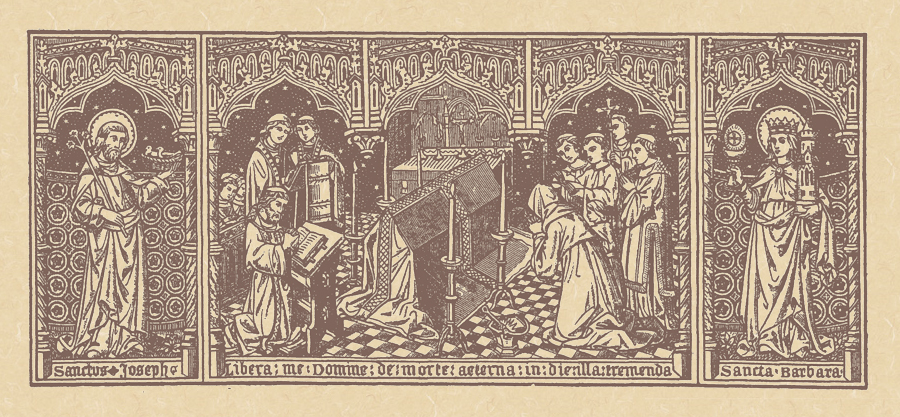

We Sanctify the World Primarily by Sanctifying Ourselves. The Thirty-First Friday of Ordinary Time. The Twenty-First Thursday after Epiphany. |
It sounds confusing. Is our Lord praising the steward or condemning him? We forget that parables, as used by our Lord, are a particular Middle Eastern form of teaching which has a hard time penetrating our literal, Western minds. The stories in these parables are not supposed to make sense like a novel or a drama on television. The events of a parable are intended to symbolize deeper realities; and, in the case of the parable of the shrewd and unscrupulous steward, the lesson our Lord teaches us is a spiritual one. That great Father and Doctor of the Church, Saint Augustine, tells us what this parable is really all about:
We are well accustomed to seeing people make unbelievable sacrifices to improve their life-style or standard of living. At times we may be taken aback by the lengths some people will go to acquire more wealth, more power, more fame. The media frequently—almost constantly—trains a spotlight on our society’s most ambitious people and their so-called accomplishments; but, are any of these people thinking of salvation? What would happen if these very same people were to put the same amount of zeal into the purification of their souls in anticipation of their final judgment?
I particularly like the last sentence of that quote from his book called quite simply, The Way. Even our apostolic works, even what we choose to do for the poor and the needy or the betterment of this earthly realm is made fruitful by the pursuit of personal holiness. No one ever went to heaven solely because of what he did for his fellow man; he went to heaven because what he did for his fellow man he did because he had already become a saint, and would have gone to heaven even if he had locked himself up in a monastery and done nothing but pray. In fact, a lot of people go to heaven that very way.
We have only one Lord. We must serve Him with all our heart, with the natural gifts He Himself has given us, using every licit means throughout our lives to ensure both our own salvation and that of those we encounter along the way. The coherent Christian does not devote one part of his attention to God and another to the affairs of this world; he must convert both into the service of God and neighbor, contributing to the sanctification of the world primarily by sanctifying himself.
|